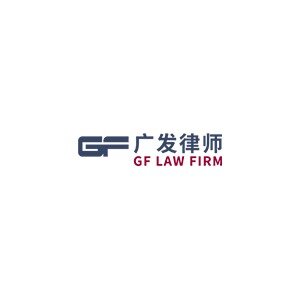Best Tax Lawyers in Wuxi
Share your needs with us, get contacted by law firms.
Free. Takes 2 min.
List of the best lawyers in Wuxi, China
About Tax Law in Wuxi, China
Wuxi, located in Jiangsu Province, is a bustling city renowned for its industrial development. The tax system in Wuxi, as in the rest of China, is governed by a combination of national and local tax regulations. Enterprises and individuals in Wuxi are subject to various taxes, including value-added tax (VAT), corporate income tax, individual income tax, and local levies. Understanding the complexities of tax regulations and compliance requirements is crucial for both businesses and individuals to avoid legal issues and optimize tax responsibilities.
Why You May Need a Lawyer
Legal assistance in tax matters can be crucial for various reasons. You may require the expertise of a tax lawyer if you are facing issues such as tax audits, disputes with the tax authorities, or compliance with complex tax obligations. Businesses embarking on transactions involving mergers, acquisitions, or reorganizations often seek legal advice to mitigate tax liabilities and ensure compliance with tax laws. Individuals may also need legal help for estate planning, filing complicated tax returns, or addressing potential penalties and fines.
Local Laws Overview
The tax regulations in Wuxi incorporate both national laws and local requirements. The main types of taxes in Wuxi include:
- Value-Added Tax (VAT): VAT applies to the sale of goods and services within China. Businesses must register for VAT and often navigate various rates and exemptions.
- Corporate Income Tax: This tax is levied on the profits of businesses operating in China, and the rate can vary based on different factors, such as company size and industry.
- Individual Income Tax: Residents and non-residents in Wuxi need to comply with income tax regulations, which are calculated based on a progressive scale.
- Local Surcharges and Fees: Wuxi, like other Chinese cities, may impose additional local taxes or fees relevant to property and business operations.
Frequently Asked Questions
What is the standard VAT rate in Wuxi?
The standard VAT rate in China is currently 13%, applicable to most goods and services, though some reduced rates apply to specific categories.
How can I register a business for tax purposes in Wuxi?
Businesses must register with the local tax office in Wuxi, typically during the company registration process, and comply with both national and local tax registration requirements.
What constitutes taxable income for residents in Wuxi?
Taxable income for residents includes wages, salaries, business profits, dividends, and other sources of income.
Can foreign enterprises benefit from tax incentives in Wuxi?
Yes, there are specific tax incentives for foreign enterprises, particularly in special economic zones and high-tech industries, which may include reduced tax rates or exemptions.
How are taxes filed by businesses in Wuxi?
Businesses are required to file taxes monthly or quarterly, depending on the type of tax, using government-specified procedures and documentation.
What penalties apply for late tax payments in Wuxi?
Penalties typically include late fees and interest charges, and more severe breaches may result in fines or administrative actions.
How do tax laws apply to expatriates living in Wuxi?
Expatriates in Wuxi are subject to individual income tax on income earned in China and potentially other global earnings, depending on their residency status.
What should I do if I receive a tax audit notice?
Consulting with a tax lawyer is advisable to ensure you comply with audit requests and address any potential discrepancies identified by tax authorities.
Are there any property taxes in Wuxi?
Yes, property transactions may incur taxes such as deed tax and property maintenance fees, which vary based on property types and values.
How can individuals optimize their tax liabilities?
Legal guidance can help individuals explore deductions, credits, and other tax-planning strategies to minimize overall tax liabilities while remaining compliant.
Additional Resources
Several resources can assist those seeking further information on tax matters in Wuxi:
- The Wuxi Local Tax Bureau provides online and in-person guidance on tax obligations and filing procedures.
- The China State Administration of Taxation offers insights into national tax policies and laws.
- Professional accounting firms and tax consultants in Wuxi can provide personalized and up-to-date advice.
Next Steps
If you require legal assistance for tax matters in Wuxi, consider the following steps:
- Identify your specific tax issue and gather all relevant documents to understand your situation better.
- Reach out to a qualified tax attorney or consultant who specializes in Chinese tax law, particularly with experience in Wuxi.
- Schedule a consultation to discuss your case, understand your legal options, and formulate a strategy for addressing your tax concerns.
Lawzana helps you find the best lawyers and law firms in Wuxi through a curated and pre-screened list of qualified legal professionals. Our platform offers rankings and detailed profiles of attorneys and law firms, allowing you to compare based on practice areas, including Tax, experience, and client feedback.
Each profile includes a description of the firm's areas of practice, client reviews, team members and partners, year of establishment, spoken languages, office locations, contact information, social media presence, and any published articles or resources. Most firms on our platform speak English and are experienced in both local and international legal matters.
Get a quote from top-rated law firms in Wuxi, China — quickly, securely, and without unnecessary hassle.
Disclaimer:
The information provided on this page is for general informational purposes only and does not constitute legal advice. While we strive to ensure the accuracy and relevance of the content, legal information may change over time, and interpretations of the law can vary. You should always consult with a qualified legal professional for advice specific to your situation.
We disclaim all liability for actions taken or not taken based on the content of this page. If you believe any information is incorrect or outdated, please contact us, and we will review and update it where appropriate.








